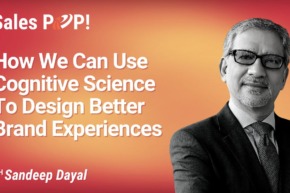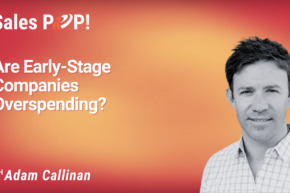Sustainability expert Andy Bhattacharyya, the founder of Amplify 40, shared his profound insights on transforming business models to embrace sustainability in a recent episode with John Golden. John and Andy delved into integrating sustainability into business practices, the economic imperatives for doing so, and the challenges and strategies companies face in implementing sustainable practices.
The Importance of Sustainability in Business
Profitability, Impact, and Purpose
Andy Bhattacharya emphasizes that sustainability is not just a trend but a fundamental shift in how businesses operate. He outlines three core aspects that businesses must consider:
- Profitability: A business must be profitable to sustain itself.
- Impact: Businesses should aim to create positive changes in the ecosystem.
- Purpose: A purpose-driven approach is essential for long-term success.
These elements are interconnected, and businesses must recognize that integrating sustainability into their operations can drive profitability, create a positive impact, and align with a greater purpose.
Overcoming Misconceptions About Sustainability
Addressing the Cost and Disruption Myth
John Golden points out that many view sustainability initiatives as aspirational but potentially disruptive and costly. Andy acknowledges this perspective and suggests that the legacy of supply chains, particularly in the context of globalization and regionalization post-COVID, has highlighted the need for responsible practices. He notes that carbon emissions and inefficiencies in supply chains can significantly impact a company’s bottom line.
Transitioning from “Nice to Have” to “Must Have”
Andy explains that businesses must transition from viewing sustainability as a “nice to have” to recognizing it as a “must have.” He cites the increasing consumer demand for responsible practices and the potential financial repercussions of neglecting sustainability. Companies that fail to adapt may face significant risks, including regulatory penalties and loss of consumer trust.
Starting the Journey Towards Sustainability
Data Collection and Reporting
Andy outlines two approaches for companies beginning their sustainability journey:
- Data Collection and Reporting: Some organizations focus solely on collecting data to meet regulatory requirements. While this is essential, it often leads to a narrow view of sustainability.
Holistic Analysis
- Holistic Analysis: A more effective approach involves a comprehensive analysis of the organization’s practices. This includes:
- Benchmarking: Comparing against competitors to identify best practices.
- Gap Analysis: Identifying areas where the company falls short.
- Heat Mapping: Visualizing areas for improvement to prioritize actions.
Andy stresses the importance of a top-down approach, where leadership drives the sustainability agenda, rather than a bottom-up approach that may overlook critical aspects.
Unexpected Benefits of Sustainability Initiatives
Case Study: Packaging Company
John inquires about the surprising outcomes companies experience when implementing sustainability initiatives. Andy shares a case study involving a packaging company that optimized its inventory management by incorporating climate, water, and energy analyses. This shift not only improved efficiency but also resulted in significant cost savings.
Innovation and Efficiency
He highlights that viewing operations through the lens of sustainability can lead to innovative practices that enhance overall business performance. Companies often discover new efficiencies and cost-saving opportunities that they might not have identified otherwise.
Challenges in Implementing Sustainability
Large Organizations
Andy notes that while larger companies have more resources, they often struggle with bureaucracy and change management. Implementing sustainable practices can be challenging due to the complexity of their operations and the need to align multiple stakeholders.
Small Companies
In contrast, smaller companies may be more agile but might not see sustainability as essential until they are required to comply with larger clients’ standards. Andy emphasizes that both large and small companies must recognize the importance of sustainability, especially as regulations become more stringent and consumer expectations evolve.
Setting Up Startups for Success
Key Recommendations for Entrepreneurs
For entrepreneurs starting new businesses, Andy offers several pieces of advice:
- Fundraising During Ideation: It’s crucial to secure funding early in the process to ensure that sustainability initiatives can be integrated from the start.
- Partnership Models: Collaborating with others can enhance problem-solving capabilities and provide access to additional resources and expertise.
- Customer Empathy: Understanding customer needs and impacts is vital for developing effective solutions that resonate with the market.
Authenticity in Sustainability
Avoiding Greenwashing
John raises the issue of “greenwashing,” where companies may superficially adopt sustainability practices without genuine commitment. Andy agrees that authenticity is crucial. He stresses that organizations must connect their sustainability efforts to financial impacts, ensuring that initiatives are not just for show but are integrated into the core business strategy.
The Future of Sustainability in Business
Regulatory Pressures and Consumer Expectations
As the episode concludes, John asks Andy about the timeline for sustainability becoming a mainstream business practice. Andy believes that the shift is already underway, with increasing regulatory pressures and a growing recognition of the value of sustainable practices. He anticipates that within a year, more organizations will fully embrace sustainability as a fundamental aspect of their operations.
Conclusion
In summary, this episode provides valuable insights into the transformation of business models for sustainability. Andy Bhattacharya’s expertise highlights the economic imperatives, strategic approaches, and the importance of authenticity in sustainability initiatives. As businesses navigate this evolving landscape, the conversation underscores that sustainability is not just a trend but a necessary evolution for long-term success.
By integrating sustainability into their core operations, businesses can drive profitability, create positive impacts, and align with a greater purpose, ensuring their success in an increasingly conscious market.
Our Host
John is the Amazon bestselling author of Winning the Battle for Sales: Lessons on Closing Every Deal from the World’s Greatest Military Victories and Social Upheaval: How to Win at Social Selling. A globally acknowledged Sales & Marketing thought leader, speaker, and strategist, he has conducted over 1500 video interviews of thought leaders for Sales POP! online sales magazine & YouTube Channel and for audio podcast channels where Sales POP! is rated in the top 2% of most popular shows out of 3,320,580 podcasts globally, ranked by Listen Score. He is CSMO at Pipeliner CRM. In his spare time, John is an avid Martial Artist.








Comments